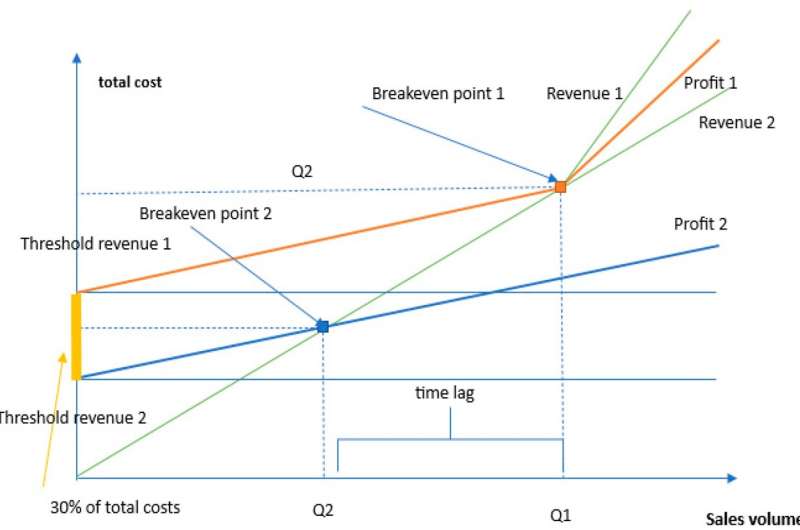This article has been reviewed according to Science X's editorial process and policies. Editors have highlighted the following attributes while ensuring the content's credibility:
fact-checked
proofread
Economists propose algorithm for flexible management of innovative enterprise for sustainable development

Economists from RUDN University have created a methodology based on mathematical modeling to manage production effectively with rapidly emerging innovations. The results were published in Sustainability.
Innovative products emerge so rapidly that enterprises have to change and adjust their management policies. Moreover, new management methods must ensure sustainable development. RUDN economists used mathematical modeling methods to develop a management methodology for enterprises that produce innovative products.
"An effective methodological tool for managing economic processes that ensure sustainable economic development of enterprises has not yet been developed. We set a goal to create such a tool based on mathematical modeling. Based on this tool, decision-makers could regulate processes, allocating additional resources and reducing risks," said Zhanna Chupina, Ph.D., Associate Professor of the Department of Customs Affairs at RUDN University.
Economists have developed a tool that will allow, in modern conditions, to manage economic processes in such a way as to ensure sustainable development. To do this, the authors used mathematical modeling—they identified the main characteristics of the creation of innovative products and the activities of companies and described the dependence of profit on them. Economists included, for example, technical superiority over competitors, scientific and technological achievements based on the product, and price compliance with the capabilities of the buyer as the main values.
RUDN economists concluded that any innovation in a product is associated with the use or modernization of means of production. The authors determined the values of the technological level and the moments at which modernization should be carried out. It turned out that this needs to be done before the break-even point occurs, that is, the sales volume at which the proceeds from the sale of goods are equal to the costs of their production.
The general algorithm that economists have proposed is based on the fact that the properties of innovative products are involved in management. After management actions, it is necessary to evaluate the characteristics of the product and answer whether it is innovative. If so, then such an enterprise is considered capable of achieving global competitive superiority in the market. If not, then the characteristics need to be changed and return to the previous step.
"We have shown that for an organization to be in constant sustainable economic development, it is necessary to carry out updates to already produced innovative products even before the break-even point. We proposed a methodological toolkit to effectively manage the creation and production of innovative products and their renewal," said Zhanna Chupina, Ph.D., associate professor of the Department of Customs Affairs at RUDN University.
More information: Zhanna Chupina et al, Sustainable Economic Development of Enterprises: A Methodology Based on the Toolkit, Sustainability (2023). DOI: 10.3390/su151712682
Provided by Russian Foundation for Basic Research





















